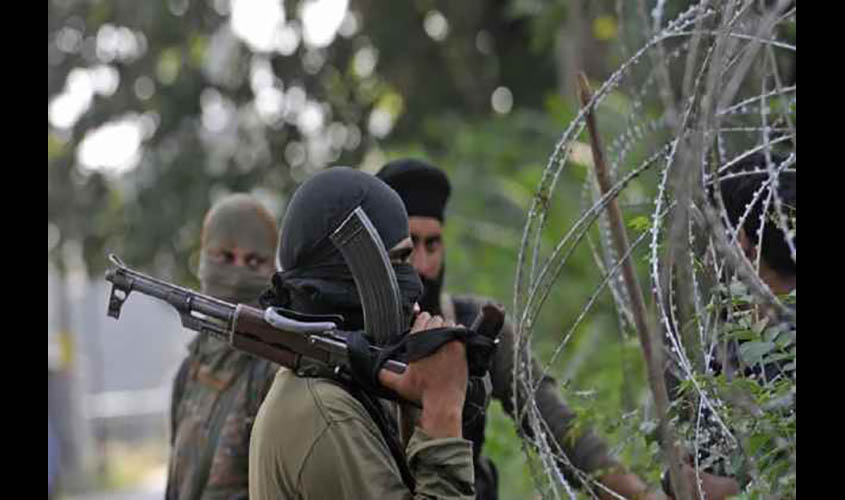The swearing in of Girish Chandra Murmu on 31 October 2019 as the Lieutenant Governor of the new Union Territory of Jammu and Kashmir marks a fresh beginning for the region; the dismantling of a dysfunctional past, the end of a toxic impasse and the glimmer of new hope.
How will the narrative of Kashmir play out in the altered scenario? Will the key stakeholders—the Kashmiri people and the government—rise to the occasion and effect a salutary outcome? Will there be a new enlightened awakening amongst the populace of Kashmir that favours amity and development over narrow partisan goals? Or will the ghosts of yore continue to haunt the new venture? These are the million-dollar questions that cry out for answers.
The partial shutdown of communication in the Valley post the abrogation of Article 370 has served as a much needed “cooling off” period; a hiatus that has definitely prevented the loss of unnecessary lives and will hopefully have dampened frayed tempers to allow some sanity to seep back into the ensuing dialogue.
The Indian government has handled the fallout of abrogation of Article 370 in a firm but humane manner, so far. There have been minimal casualties at the hands of security personnel; in contrast, at least 10 innocent civilians (Kashmiri and non-Kashmiri) have been killed in cold blood by terrorists or lynched by stone pelting mobs. These incidents clearly vindicate the stringent measures taken by the government and serve as a sharp rebuttal to the hue and cry raised by activists.
Moving forward, it is expected that the government will carry out its developmental agenda promptly so that Kashmiris experience early the fruits of this venture.
For their part, Kashmiris need to look upon this change as a new beginning; an inflexion point for deep introspection as to what 70 years of an armed, violent struggle and making common cause with Pakistan has achieved; and a nudge to embrace the future with pragmatism while discarding the failed axioms of the past, namely separatism, religious xenophobia and violence.
First, Kashmiris must realise that the concept of Article 370 as an iron-clad guarantee of their identity was a myth. Pluralism is the quintessential mantra of Indian tradition; sub-identities and sub-cultures have flourished without any hindrance for ages without paper assurances. Just as Gujaratis, Maharashtrians, Kannadigas etc., have preserved their unique cultural traits without the need for a restrictive covenant like Article 370, Kashmiris and their culture will thrive—there is no need to fear.
Second, when Maharaja Hari Singh signed the Instrument of Accession with India and when this was subsequently ratified by the Constituent Assembly of Kashmir, it meant that the state and its people agreed to abide by the basic tenets of our Constitution, namely, democracy, secularism and our sovereignty. Over the years, some Kashmiri leaders have endorsed a Janus-faced interpretation of the Constitution—invoking it to deter any threat to the abrogation of Article 370 even as they flouted the defining principles of our charter.
By tacitly supporting the ethnic cleansing of Kashmiri Pandits, Wahhabi elements within Kashmir demonstrated scant respect for our concept of secularism; by hobnobbing with Pakistan they trivialised our sovereignty and by violent stone pelting and encouraging gun-toting militants they mocked our democracy.
It would be wrong to view all Kashmiris as separatists and terrorists—they are not. But it is also undeniable that a vocal minority comprising Pakistan-fuelled Wahhabism has been allowed to hijack the narrative of Kashmir and enforce their evil diktat, with the moderate majority playing along as passive spectators.
Therefore, some among the Kashmiris cannot absolve themselves of the negative consequences of this violent insurgency. When they claim victimhood, such elements must realise that they themselves are responsible for the quagmire they are in.
Democracy is not a free for all in which everything and anything goes. Freedom of a democracy is not a licence to kill and create mayhem at will. Democracy is a social contract between a people and the government that they elect, each with its own set of defined responsibilities and duties.
We need to frame the future within the guidelines of this social contract and expect Kashmiris to live up to their part of the contract by wresting control of their destiny from separatists and terrorists, eschewing violence and embracing secularism (meaning the return of Pandits with dignity and security).
There should be no illusions of the future. Article 370 is dead, Pakistan an imploding nation as a counterfoil to India is no longer valid currency and Kashmir as an integral part of India is non-negotiable. The international community, after demonstrating an initial courtesy interest, have relegated the Kashmir issue to the backburner. These are the realities of our current times.
As an aside, it will also help if India’s liberals tone down their alarmism and desist from inflaming and encouraging wayward Kashmiri passions fuelled by Wahhabism and grounded in the Two Nation theory that vivisected India, affecting Muslims of the subcontinent most of all.
Finally, the onus of a smooth transition is not the responsibility of the government alone. The moderates in Kashmir have a greater stake in the outcome of this new initiative as their future is dependent on it; it is in their interest to make this succeed.
Pragmatism and good sense must prevail. If it does, it will be a win

